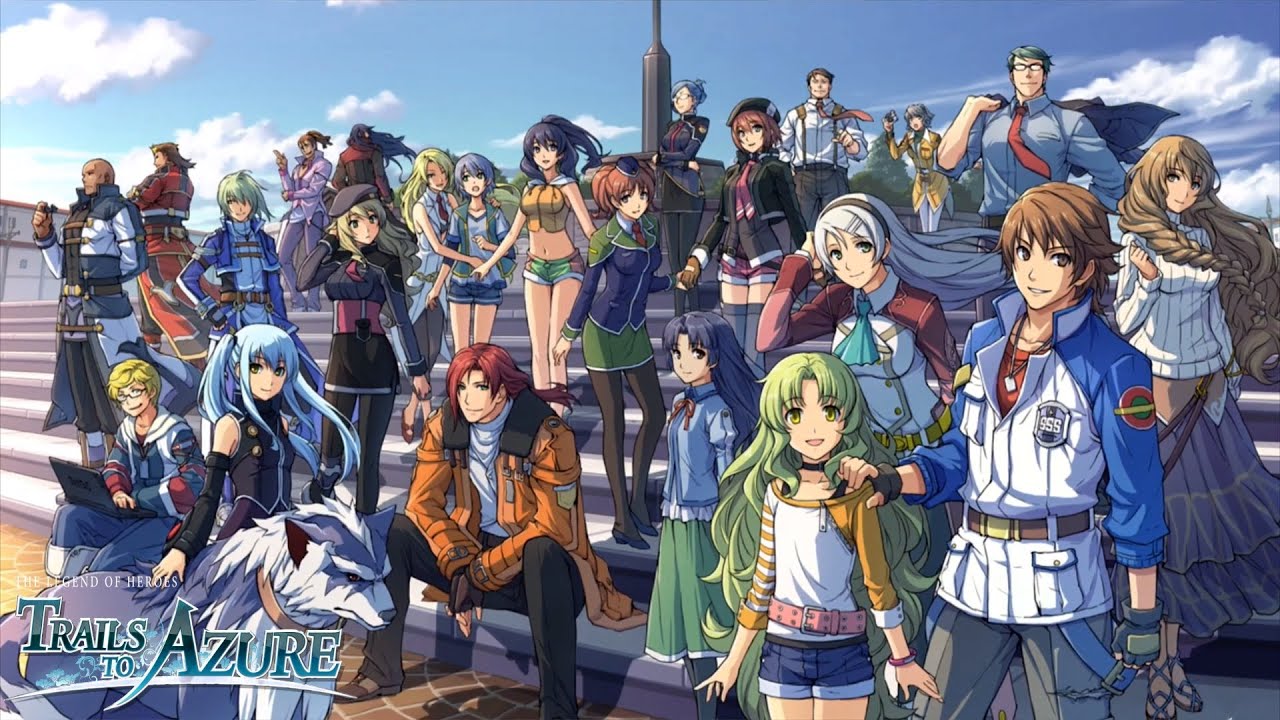During summer vacation I took the opportunity to play even more Trails! After finishing up the first arc on Steam Deck, it was finally time to tackle the next arc on Nintendo Switch: Trails from Zero and Trails to Azure, AKA the Crossbell Arc. Did it live up to the expectations set by Trails in the Sky? Would I experience Trails fatigue? Should you play Trails? The answers are: yes, no, and yes. If you still want to know more, read on!
The Crossbell Arc takes place in, you guessed it, Crossbell. A city-state located between the continent’s major powers, Crossbell’s a contested area that also acts as a major economic hub due to it’s central location. The theme is quickly established to be the political turmoil caused by the two major powers both claiming sovereignty over Crossbell, an interesting and quite mature backdrop for a JRPG.
You play as Lloyd Bannings, a fresh-out-of-school police detective. He’s assigned to the newly formed Special Support Section (SSS), a new branch of the Crossbell police that’s supposed to do all the lame stuff the “real” police don’t have time for. Together with three oddball colleagues (Elie, Randy, and Tio) and their boss, SSS starts sorting out odd jobs and fetch quests for the citizens. Of course, they eventually end up tackling organized crime, investigating an evil cult, and getting entangled in the very fate of Crossbell and the entire continent. That’s a JRPG story for you! I’ll refrain from talking more about the story since it’s best to go in blind with Trails games, but trust me when I say it’s really good.
As with the previous Trails games, the story is both exciting and well written. There are twists and turns, mind-boggling reveals, callbacks to the previous games, and foreshadowing upcoming games—all within a very fleshed out and believable world. Talking to NPCs is just as much of a joy as in the previous games, with tons of unique dialog that reveal more about the world and its inhabitants. This is particularly cool to see since both these games are based on the work of a fan translation. The pacing is fantastic, too, much better than the Sky arc. Every chapter felt relevant and interesting, urging you to keep playing to see how the story developed.
Much of the gameplay is almost a cut-and-paste job from the Sky games, but that’s not a negative. The turn-based combat is still fantastic and the materia-esque Orbment system encourages experimentation and customization. The quest structure is also akin to how the Bracer Guild works in the Sky games (something the dialog even pokes fun at), which I don’t mind at all.
There are some additions and improvements to the systems. You can now earn bonding points with your party members, unlocking special bonding scenes if you rack up enough camaraderie. A bit like a light version of Persona’s social links. Another addition, the Master Quartz introduced in Trails to Azure, was a welcome way to focus character builds on certain aspects. A Master Quartz is similar to a Job in Final Fantasy games: only one can be equipped and it adds unique passive abilities and alters stats. It discourages “everyone does everything” strategies, which I think is very positive.
Overall, Trails from Zero and Trails to Azure were fantastic games. Falcom took everything they learned from the Sky Arc, tweaked it, and created a pair of perfectly paced, engaging RPGs. After finishing Azure I was now completely on board with the Trails series. While I’m already worried that no future game will reach the heights of the Crossbell Arc, I’ll keep playing to find out!
Things I liked:
- The story and writing is top notch with excellent pacing
- The main cast is very likeable, and as opposed to many RPGs you have access to all the main characters right away
- Crossbell’s just the right size
- Callbacks to Trails in the Sky felt like a warm hug
- The systems and gameplay are (still) solid, with meaningful improvements
Things I didn’t like:
- The ending makes you want to rush into the next game, leaving some satisfaction for later
- Still a lot of missable content if you don’t take the time to talk to everyone all the time

